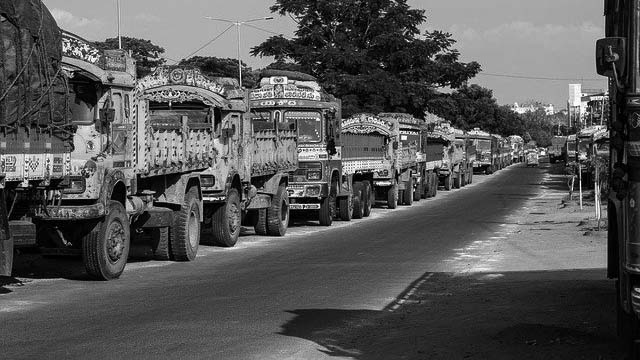The grievous blow that COVID-19 has given to the economies of all nations is devastating. India’s lockdown, at a conservative estimate, may require Rs 6 to 8 trillion to restore relative normalcy. Key economic activities have plummeted and accelerated the crises already experienced by the medium, small and micro enterprises (MSME) and other sectors many times over. MSME-s engaged in manufacturing and exports are facing demand shrink and find themselves with no money to pay their employees. They await a relief package of Rs 200 billion from the centre to recoup and assemble all ingredients for restart.
The first sector to keel over, tourism and hospitality, and possibly the last to turn around, is staring at 40m job losses.
The aviation industry faces lay-offs and pay cuts as only cargo movement and repatriation flights operated in this sector during the lockdown. Otherwise, the skies remained bare. Domestic flights have commenced in fits and starts from May 25th onwards.
The real estate sector will be slow to turnaround due to lack of labourers and key raw materials like cement, sand and steel, the supply of which is yet to be streamlined.
Even before the current crisis, the healthcare sector in India was in a silent scream. The public investment in health infrastructure was lamentably low and apathy towards the invisible masses was all too evident. Shortage of doctors, medicines and equipment was denying the public of a health safety net exposing them to a financial crisis at any time.
Wise leaders and nations put money where the people get recurring benefits year after year: Hospitals, schools and in human development. They look deep into all infrastructure costs and calculate the benefits with due consideration to the long-term environmental costs.
On that score what is our track record in the last 10 years?
Government offices spend lavishly on office buildings. Corruption and inefficiencies are the banes of food and fertilizer subsidies. Cost overruns in projects are legion and billions invested in projects yield no return.
Have we paid attention to the opportunity for freight movement by trains and how it can be improved with better management tools before expanding the road infrastructure?
Have we looked into the health costs to city dwellers before opening up the automobile sector?
The world’s tallest statue at 182 metres cost Rs 30 billion and it is in India. What is its recurring and real benefit? Other statues are in the pipeline. These will cost Rs 81.19 billion and many of them violate environmental norms.
We hosted international sporting events mindlessly chasing deadlines with no proper evaluation of costs. Wasteful ways of doing these events produced minuscule or no recurring benefits to sports. Commonwealth Games had cost us Rs 700 billion and corruption allegations, construction delays and cost overruns were the legacy.
Billions were spent on the prime minister’s foreign travels in the last six years. Meeting many political leaders of the world is a laudable idea and gives photo opportunities, but is it enough to turnaround diplomatic relations?
On advertising, publicity and related activities alone, the government has spent Rs 48 billion of taxpayers’ money from 2014 onwards. Have we reaped any recurring benefit?
The proposed bullet train between Mumbai and Ahmedabad will cost Rs 900 billion.
Widespread mismanagement, hidden waste in defence bills and lack of transparency are eating away large amounts of public money allocated to defence annually.
Promises of a US$5 trillion economy and “doubling of farmers’ income” will remain only slogans if there is no thought and commitment behind the words.
To start with, let the human flight space programme costing Rs 100 billion, which involves training astronauts, upgrading launch facility and launch escape systems, be deferred infinitely. The manned flight at an altitude of about 400km above the earth, to be preceded by two unmanned flights, has not been initiated by any societal need.
Are we going to spend so much money just to derive some vague ‘prestige’ among other nations and trumpet ourselves as a space-faring nation? To recall Dr Vikram Sarabhai, the father of Indian space programme, “We do not have the fantasy of competing with the economically advanced nations in the exploration of the moon or the planets or manned space flights. But we are convinced that if we are to play a meaningful role nationally and in the community of nations, we must be second to none in the application of advanced technologies to the real problems of man and society”.
The new Parliament construction that is estimated to cost nearly Rs 10 billion can be shelved for the time being. Beautification of the heart of New Delhi will be better served with acts of kindness for struggling lives. When the present lockdown is lifted and we return to a new normal, let our leaders and bureaucrats learn to spend less on luxury and cut their frequent travels, five-star culture and wasteful ways of managing the nation. Dare one hope that the idea of ‘common good’ will remain at least in a small corner of the thinking process of our leaders? Can we shower empathy on fellow beings rather than a token of petals? The big question: Can we afford governments that go on and on with “business as before”?
Gayatri Chandrashekar is a television and print journalist, and an author.

